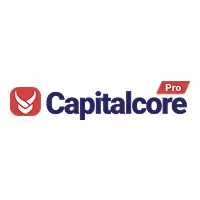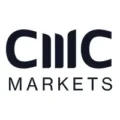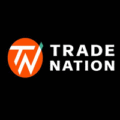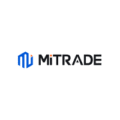Before diving into our updated list of top forex brokers for 2026, it’s essential to understand how to choose the right broker for your needs. Over the past decade, online trading has surged in popularity. While the industry is still relatively new, the number of forex brokers available is vast. Many brokers provide excellent services, but it’s crucial to ensure the one you choose aligns with your trading requirements.
 The first and most important factor to consider is regulation—ensure the broker is licensed by a reputable financial authority. Next, evaluate their trade execution and slippage to avoid unnecessary trading frustrations. Other key aspects to review include trading costs, spreads, withdrawal processes, trading platforms, and customer support quality. To make your decision easier, we’ve created a step-by-step guide to help you select the forex broker that best fits your trading strategy and goals.
The first and most important factor to consider is regulation—ensure the broker is licensed by a reputable financial authority. Next, evaluate their trade execution and slippage to avoid unnecessary trading frustrations. Other key aspects to review include trading costs, spreads, withdrawal processes, trading platforms, and customer support quality. To make your decision easier, we’ve created a step-by-step guide to help you select the forex broker that best fits your trading strategy and goals.
The Vital Importance of Genuine Broker Reviews
Choosing the right forex broker is just as crucial as developing a solid trading strategy. Trading with an unreliable broker is like going into battle without armor—you’re exposed to unnecessary risks that can easily be avoided with the right research.
At All Brokerinfo, we take pride in providing accurate, unbiased broker reviews to help traders make informed decisions. As industry experts, we understand that a trustworthy broker plays a key role in your trading success and capital preservation. That’s why we’ve dedicated significant time and effort to compiling the Definitive Guide to Forex Brokers—an essential resource for traders at all levels. Feeling overwhelmed by the sheer number of forex brokers available? No worries—we’re here to help you navigate the options and find the broker that best suits your needs!

Protecting your hard-earned money starts with choosing a trustworthy forex broker. Always trade with regulated brokers and steer clear of unregulated ones at all costs. Before opening an account, verify which financial authority oversees the broker and confirm that their license is valid and up to date.
Regulatory bodies enforce strict rules on forex brokers, covering aspects such as maximum leverage limits, fund protection measures, and client security protocols. These regulations ensure that your deposits and trading profits are safeguarded against unfair practices.
Before making your choice, ensure the broker complies with all necessary forex trading regulations to guarantee a safe and transparent trading environment.
The Definitive Guide to Forex Brokers
Gain valuable insights into the most critical aspects of choosing a forex broker:







With this guide, you’ll have all the essential tools to make an informed decision and choose the best broker for your trading journey!
Forex Broker Types – Which One is Right for You?
Did you know that not all forex brokers execute trades in the same way? The type of broker you choose affects spreads, commissions, rollover fees, liquidity, re-quotes, slippage, and execution reliability—all of which impact your trading experience.
Here are the three main types of forex brokers:



Each broker type comes with its own advantages and drawbacks, making it essential to align your choice with your trading strategy and goals.

Trading Platforms
The trading platform you choose can significantly impact your trading experience. The most widely used platforms are MetaTrader 4 (MT4) and MetaTrader 5 (MT5), both known for their reliability, powerful tools, and user-friendly interfaces. Nearly all brokers offer one of these platforms.
 However, if you’re looking for something different, many brokers provide their own customized trading platforms. While some of these platforms can be confusing for beginners, others are intuitive and offer unique features that may enhance your trading experience.
However, if you’re looking for something different, many brokers provide their own customized trading platforms. While some of these platforms can be confusing for beginners, others are intuitive and offer unique features that may enhance your trading experience.
For a comprehensive list of brokers and their trading platforms, check out our featured forex brokers list above. Take the time to read about each platform’s capabilities to find the one that best suits your trading needs.
Broker Fees to Consider
Costs play a crucial role for every trader, making low spreads a key factor in choosing a forex broker, especially for those trading short-term signals. Beyond spreads, traders should also be aware of additional charges, including deposit and withdrawal fees, dormant account fees, and other potential costs. Dormant account penalties, in particular, can be significant. To avoid unexpected expenses, always review a broker’s full fee structure before opening an account.
Broker Customer Support
Customer support is a crucial factor when choosing a forex broker. A responsive and efficient support team can prevent minor issues from escalating into major problems. Additionally, consider other services such as bonuses, rebates, promotions, as well as online and in-person training, including webinars. Evaluating these features based on your trading experience and methods can help you select a broker that aligns with your needs.
 Your trading style also plays a key role in determining the right broker. For instance, if you rely on a scalping strategy but the broker does not permit it, you won’t be able to trade effectively. Since each broker operates differently, it’s advisable to open a demo account to test your strategy and assess compatibility before committing to an investment.
Your trading style also plays a key role in determining the right broker. For instance, if you rely on a scalping strategy but the broker does not permit it, you won’t be able to trade effectively. Since each broker operates differently, it’s advisable to open a demo account to test your strategy and assess compatibility before committing to an investment.
Spread and Commission
A forex broker’s spread and commission structure is a key factor to consider when comparing options. Wider spreads make it harder to execute trades profitably, as the price must move further to reach your take-profit level. Additionally, a larger spread places the price closer to your stop-loss, increasing the risk of losing trades.
Beyond these challenges, high commissions, costly rollover fees, and other charges can significantly reduce your trading profits over time. To maximize your returns, it’s essential to research and compare brokers’ spread and commission structures carefully before making a decision.
Social Forex Brokers
For traders who prefer not to handle market analysis and trading decisions themselves, social forex brokers offer an efficient way to access the forex market—and many others. Through social trading and copy trading platforms, investors can easily replicate the trades of experienced, profitable traders with minimal effort.
On the flip side, skilled traders can become leaders in social trading networks. If you trade responsibly and consistently generate profits, you can earn commissions as a “popular investor.” Your trades will be copied by followers, and brokers will compensate you based on the number of copiers and/or the total funds you manage.
Social forex brokers provide a unique opportunity to either follow successful traders or monetize your own expertise. If you’re interested in exploring this approach, researching top social trading platforms is a great place to start.
🏆 8 Best Forex Brokers
Best Forex Broker by Criteria
The best forex broker should meet several key criteria to ensure a smooth and profitable trading experience:
- User-Friendly Platform – A well-designed, intuitive trading interface that caters to both beginners and experienced traders.
- Low Spreads & Competitive Fees – Tight spreads and minimal commissions to reduce trading costs.
- Fast Execution – Reliable trade execution with minimal slippage, especially for high-frequency and scalping traders.
- Wide Range of Currency Pairs – Access to major, minor, and exotic forex pairs to diversify trading opportunities.
- Robust Security – Strong regulatory compliance, fund protection, and encryption for a secure trading environment.
- Transparent Pricing – No hidden fees or unclear cost structures.
- Responsive Customer Support – 24/5 or 24/7 multilingual support via multiple channels (live chat, phone, email).
- Educational Resources – Training materials, webinars, market analysis, and trading guides for skill development.
- Advanced Trading Tools – Technical indicators, charting tools, automated trading, and risk management features.
- Variety of Account Types – Multiple account options, including standard, ECN, Islamic, and demo accounts to suit different trader preferences.
Selecting the best broker depends on your specific needs and trading style. Always compare brokers based on these factors and consider opening a demo account to test their services before committing real funds.


















